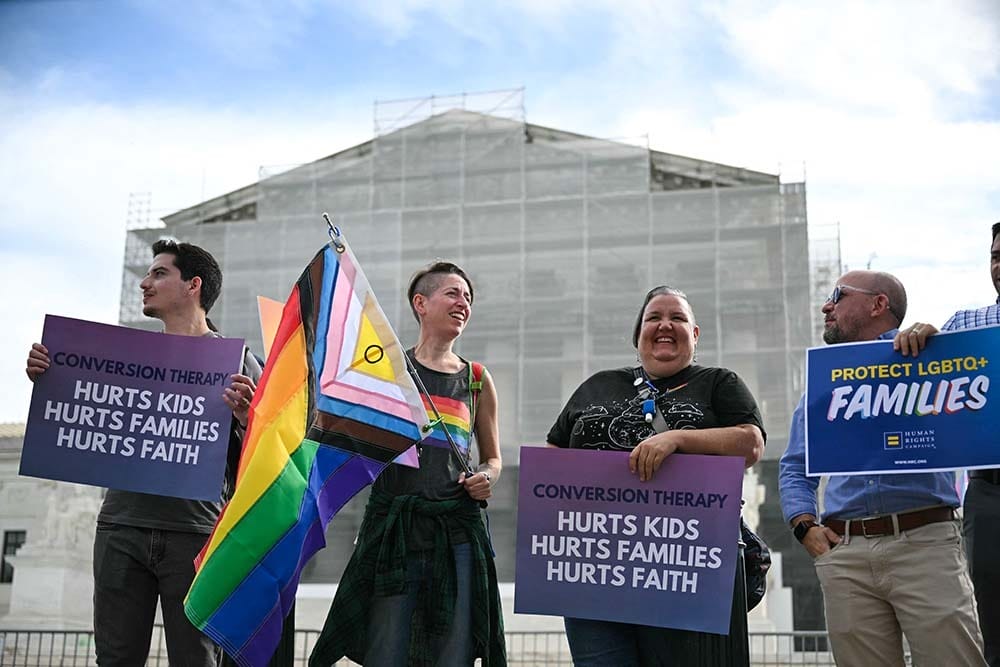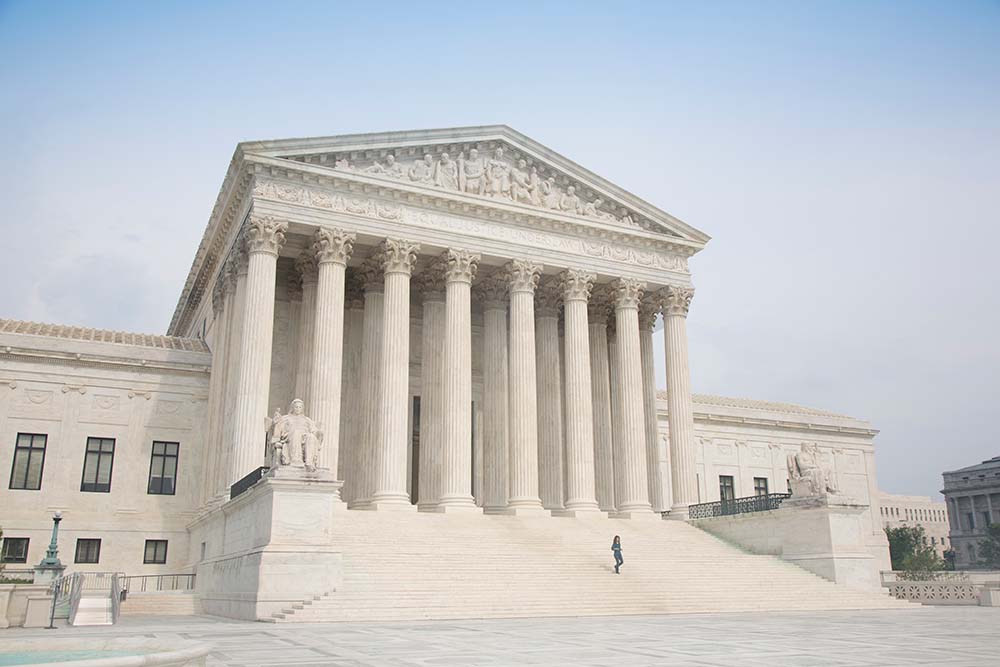Tuesday, October 7 marked the first day back for the U.S. Supreme Court’s fall term — and the first case the justices heard could have consequential impacts on the LGBTQ community.
Chiles v. Salazar concerns a Colorado therapist, Kaley Chiles, seeking to overturn the state’s law protecting LGBTQ youth from so-called conversion “therapy,” or practices that make false promises to young people that they can change their sexual orientation or gender identity if they just try hard enough. Chiles has never worked with LGBTQ youth, but claims Colorado’s regulation on youth mental health treatment is a violation of her freedom of speech. Chiles’ reasoning ignores the fact that mental health counseling and treatment are forms of health care subjected to regulations around professional conduct and best standards of care. In Colorado and many other states, therapists are always permitted to provide a space for young people to explore their sexual orientation or gender identity, but cannot pressure young people toward a specific outcome.
During arguments, the justices heard details about the harms of so-called conversion “therapy,” including expertise from a friend-of-the-court brief submitted by Dr. Jack Turban, an adult, child, and adolescent psychiatrist and director of the Gender Psychiatry Program at the University of California, San Francisco. Dr. Turban filed in the case alongside health care professionals, survivors of conversion practices, ex-conversion therapists, and more. His brief outlines the ways that efforts to change a young person’s sexual orientation or gender identity – whether through aversive or non-aversive methods such as talk therapy – have undeniable harms.

Justice Ketanji Brown Jackson pointed out that the Court just over the summer had ruled in favor of states’ ability to regulate health care, including in regards to LGBTQ youth, as they see fit, and that this case was no different. “I’m just, from a very broad perspective, concerned,” Jackson said, “about making sure that we have equivalence with respect to these things.”
Historically, conversion practices have involved behavior modification and aversive therapies, as well as discredited psychoanalytic theories pushed by anti-LGBTQ groups for decades — such as the claim that being LGBTQ is caused by faulty parenting or by trauma or abuse. These claims fracture families by pitting children against their parents; and they also cause youth to feel disconnected from their faith communities.
In its preview of oral arguments, the Associated Press cited a Christian parent of four children, Linda Robertson, who spoke of the pain and despair her son, Ryan, went through when he was subjected to years of conversion practices after coming out to her as gay at 12 years old. The techniques led him to blame himself when it didn’t work, leaving him ashamed and depressed. He died in 2009, after multiple suicide attempts and a drug overdose at age 20. “What happened in conversion therapy, it devastated Ryan’s bond with me and my husband,” Linda said. “And it absolutely destroyed his confidence he could ever be loved or accepted by God.”
View this post on Instagram
Conversion “therapy” practices have additionally been proven to cause harm through increased rates of suicide attempts, anxiety, and depression among those subjected to it. Colorado’s law applies only to narrowly defined efforts to change a young person’s sexual orientation or gender identity by licensed therapists; and has exceptions for non-licensed religious counselors. For these reasons, approximately two dozen states in total have protections for LGBTQ youth from conversion therapy in place, similar to Colorado’s law. These laws enjoy broad nonpartisan support including among Republican legislators who have voted in favor of the protections in legislatures all across the United States more than 1,000 times, according to The Trevor Project. Accordingly, it’s possible the case’s outcome will have nationwide implications.
A ruling is expected by summer 2026. In the meantime, GLAAD will continue our work with LGBTQ movement partners, legal organizations, and allies to lift up the voices of those affected by dangerous conversion practices and to ensure the safety and well-being of LGBTQ youth in Colorado and everywhere in the country. For more information, read GLAAD’s full fact sheet on Chiles v. Salazar.













